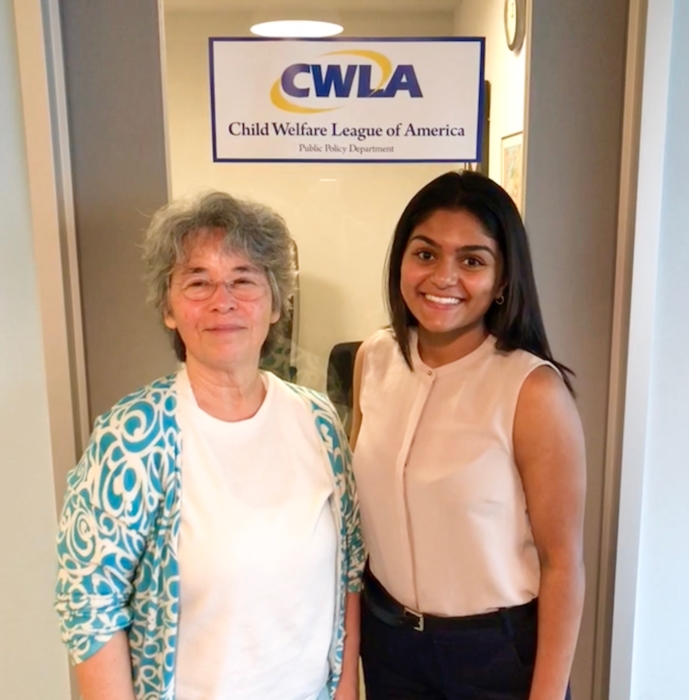
As the crisis of family separation unfolded at the U.S. border, Nishara Gunasekara ’19 was around the corner from the White House attempting to counter President Trump’s zero-tolerance immigration policy, which calls for the prosecution of those who illegally enter the United States. The effect of that policy has been that parents crossing with their children are held in criminal custody, while children are either placed with a sponsor or held in a shelter.
A dual major in economics and feminist, gender, and sexuality studies, Gunasekara is concerned about the zero-tolerance policy in part because of her work as a practice standards researcher at the Child Welfare League of America (CWLA). The CWLA is a national coalition of public and private agencies that seeks to improve the welfare of children and families through evidence-based strategies. Examining topics ranging from family separation to the use of medical marijuana among children, Gunasekara stays up to date on public health and welfare issues, responds to congressional bills, writes issue briefs on understudied areas of child and family welfare, and creates infographics to address misconceptions in the media.

Much of her work this summer has centered around child trafficking. With respect to family separations, Gunasekara has investigated President Trump’s claims that children at the U.S.-Mexico border were being placed in safer hands.
“There are law enforcement officials and politicians who are claiming that the parents at the U.S.-Mexico border are drug traffickers and human traffickers, so it is really in the best interest of the children to be separated. I was tasked with looking into how these determinations are made, and if border patrol agents are even qualified to make these determinations,” says Gunasekara.
Through her research, Gunasekara found that border patrol agents are not properly trained to distinguish whether parents are falsely claiming guardianship. “Human trafficking is a particularly insidious form of organized crime that requires specific intelligence and training that border patrol agents do not have,” says Gunasekara.
“This summer, in particular, has shown to be a really ominous time for children and families,” says Gunasekara. “It has been really interesting working in child welfare during this political climate, especially in Washington, D.C.”
In addition to examining child welfare policy at the U.S.-Mexico border, Gunasekara has been researching legislation regarding firearms in foster care. Her most recent assignment is to develop an updated issue brief on the use of medical marijuana among children and adolescence.
Gunasekara has already seen the impact of her work, as various welfare agents have reached out to her applauding her infographics, issue briefs, and executive reports. “It’s really empowering to know that my work is directly improving the knowledge banks of various welfare agencies and will eventually trickle down into serving children and families,” says Gunasekara.
Gunasekara would like to work in a cybersecurity sector of the government to combat child sexual abuse and the online exploitation of children. “Topics related to children and families really light a fire in me,” she says. “Ultimately, I want to change the way society views children, from being individuals who are to be ‘seen and not heard’ to individuals who have rights and boundaries to be respected.”
“I also want to change the way children view themselves, from kids who cannot question authority to individuals who can exercise appropriate degrees of jurisdiction over what happens to them and their bodies,” she continues. “If we want to see a strong political, economic, and social future, we need to start by giving our future leaders a voice and a choice now.”

